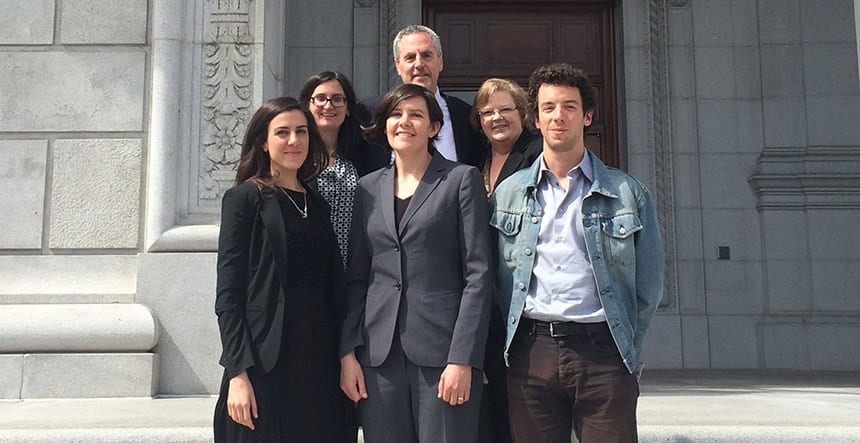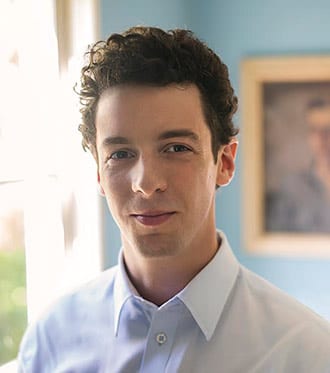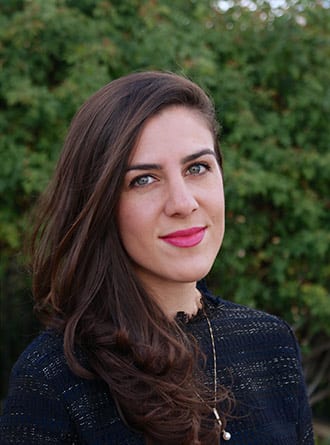
By Susan Gluss
The case of California resident Paul Macabeo started innocently enough. On a late summer night, in July 2012, he slowly rode his bicycle through a stop sign. The street was deserted, but, unbeknown to Macabeo, a patrol car with its lights off had been trailing him. As soon as he rode through the sign, the cops pulled him over.
The officers asked Macabeo for permission to empty his pockets, and he agreed. They found his cell phone and searched it—without a warrant and without his consent. Scrolling through the phone, they found illegal photos of child pornography.
The officers hadn’t intended to arrest Macabeo—only to cite him for failure to stop, a minor infraction. But once they discovered the photos, they handcuffed him and locked him up. He was found guilty of a felony and sentenced to five years of probation.
At the time, Macabeo couldn’t have known that his bike ride—and the cell phone search—would lead to a legal battle that could impact millions of Californians. Nor could he have known that the Samuelson Law, Technology & Public Policy Clinic and its students would play a major role in his defense.
The complex Fourth Amendment issues the case raises align closely with the clinic’s work. So, once Macabeo’s lawyer petitioned for review before the Supreme Court of California, Berkeley Law’s Charles Weisselberg, a criminal law professor and associate dean; and Catherine Crump, associate director of the Samuelson Clinic and a privacy law expert, reached out to offer assistance. Macabeo’s attorney, Karen Bird, jumped at the chance to involve the clinic as co-counsel.

“I thought it was a great opportunity for law students because it’s a perfect storm in terms of facts of case and how they relate to issues percolating in California courts,” Bird said.
High stakes
Although seemingly one man’s battle against the government, People v. Macabeo “raises a significant issue” with far-reaching implications, Crump said.
Simply put, the issue concerns the legality of a warrantless search: when it can take place and why. Police are only allowed to conduct a search without a warrant during—or after—an arrest. This makes sense: Officers need to ensure that suspects aren’t concealing weapons or criminal evidence.
But in Macabeo’s case, the facts show that police had no intention of arresting him. They searched his cell phone anyway—and then decided to arrest him after they found the photos.
The clinic maintains that—putting aside the nature of the photos — the search was illegal.
Giving the police “sweeping authority” to search anyone suspected of even minor traffic infractions, regardless of whether they are being arrested, “raises the troubling prospect of widespread searches of people going about their daily lives,” Weisselberg said,
“It means that any officer in California who sees a speeder, or a person who’s parked illegally, or someone who’s riding a bicycle the wrong way on the street, or a pedestrian who steps into the crosswalk when the red light is starting to flash—they could be stopped and their person and their belongings could be searched,” he added.
Legal analysis
Over the course of several semesters, the students and professors met weekly to discuss how to frame the case and structure a strong argument for the High Court opening brief.
“The students were integrally involved in all aspects of the project,” Crump said, “from getting the records from the lower courts, to formulating an outline of what the opening and reply briefs should say, to conducting the necessary legal research, to finally drafting briefs and physically filing them in court.”
Jonathan Unikowski ’15 LL.M. framed the case as an excessive reach of police power.

“It seemed absolutely insane that police officers could be given the power to search anyone” who commits a minor infraction, he said. “No one benefits” from excessive searches. “Not the cops, not the defendants, not society as a whole. It’s hard stuff, but we have to get it right.”
Bronwen Tomb ’16 castigated the lower courts for “validating an illegal search.”
“The decision to disregard Mr. Macabeo’s rights was egregious on its own. The potential erosion of privacy rights for everyone in California made the case even more urgent,” Tomb said.
Students spent hours digging into case law and studying the “legal matters at the intersection of law and technology,” said Frida Alim ’16.
“In confronting the issue of a cell phone search, we’re inevitably trying to pull warrantless search law into the 21st century by trying to shape its application to the privacy concerns inherent in modern technology,” she said.
In the meantime, the California Dept. of Justice has published a training video telling officers that they can search anyone who has committed any infraction—and only later decide whether to cite or arrest the person. Weisselberg takes aim at California’s attorney general for ceding such power to law enforcement.
“This is a time in America in which there are strained or broken relations between many police departments and the communities that they serve. This is a time when the attorney general should be working to build trust between law enforcement and those communities. And to have the attorney general advocate, as she did in this case, that search authority should be expanded, just seems wrong. It’s inappropriate and counter to what we need to move forward in this country,” he said.
Weisselberg delivered oral arguments in People v. Macabeo just weeks ago in the Supreme Court of California. A decision is expected by early August.